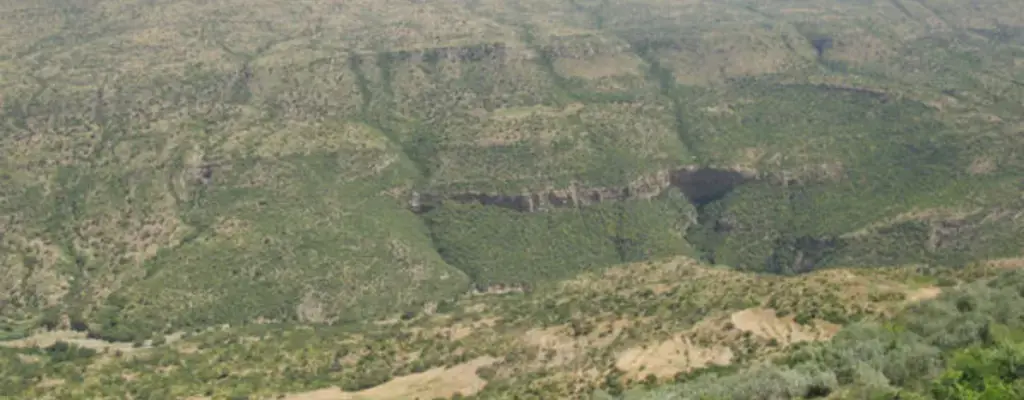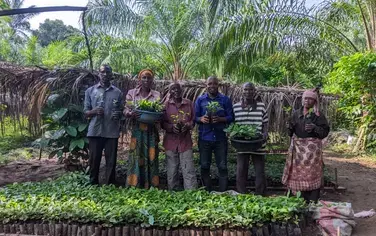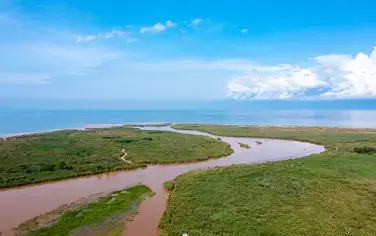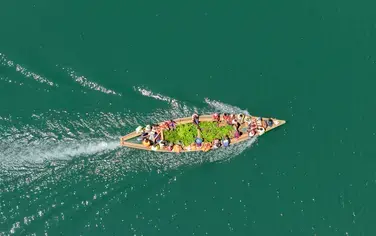[ADDIS ABABA] Generating sufficient scientific knowledge to restore degraded lands is critical in Africa because the continent largely depends on land and other natural resources for socioeconomic development, experts say.
Most populations, it was noted at the1st African Forest Landscape Restoration (AFR100) Regional Conference this month (11-12 October) in Ethiopia, depend on land for livelihoods but there has been massive degradation and this calls for, among others, adequate knowledge for restoration, particularly by small-scale farmers.
“This requires inter-universities collaborations because not all African universities are well endowed with enough resources to generate needed knowledge and tools,” says Alice Akinyi Kaudia, environmentsecretary in Kenya’s Ministry of Environment and Natural Resources. “It will [also] be useful to develop centres of excellence within them to address this urgently.”
The AFR100 conference was organised by the New Economic Partnership for Africa’s Development, Federal German Ministry for Economic Cooperation and Development, the World Bank, and the World Resources Institute.
We need to undertake research from the point of view of problem solving; getting to know farmers or communities’ real problems caused by degradation and that can only be attained by embracing a model where farmers are consulted from research design to generating of innovationsand technologies for use,” Kaudia adds.
She explains that mining and logging activities are degrading a large proportion of Africa’s land. “Rivers are drying, Lake Chad is gone, Lake Turkana in Kenya is receding and [thus] people have to take restoration very seriously,” says Kaudia.
There is also a need to develop markets for farmers to embrace approaches such as agroforestry with confidence they will sell products profitably, making restoration attractive and sustainable business.
“Restoration from an ecological point of view needs to be examined systematically and holistically to enable farmers get a package of knowledge and investment capacities to achieve tangible targets,” she says, adding that governments should create policies and incentive mechanisms for farmers, especially smallholders, to undertake restorations.
According to Kaudia, AFR100 initiative that targets restoration of one million hectares of African degraded landscape by 2030, needs political and scientific focus because demand for natural resources has outstripped supply.
She adds: “We need a continental goal with clear quantifiable targets to focus on restoration of degraded landscapes. There is need for transformative business entrepreneurship and an inclusive process of policy makers, farmers and scientists to agree on technologies and innovations that will to help reach the 100 million hectares restoration target.”
Ato Kebede Yimam Dawd, Ethiopia’s minister of forest at the Ministry of Environment, Forest and Climate Change, says that AFR100 will accelerate landscape restoration to enhance food security, increase climate change resilience and mitigation, and combat rural poverty.
“We know that restoring the ecological functions of our landscapes is essential for economic development and achieving food and water security,” he says.
Ethiopia, he explains, has committed 15 million hectares to be restored, which is one-seventh of the size of country: “We are speaking of using trees in 15 million hectares of agricultural, pastoral, and forest land to increase productivity of land, resilience, and the well-being of our people.”
Dawd adds that the country has seen progress with communities mobilising people voluntarily to restore degraded lands.
This piece was produced by SciDev.Net’s Sub-Saharan Africa English desk.




